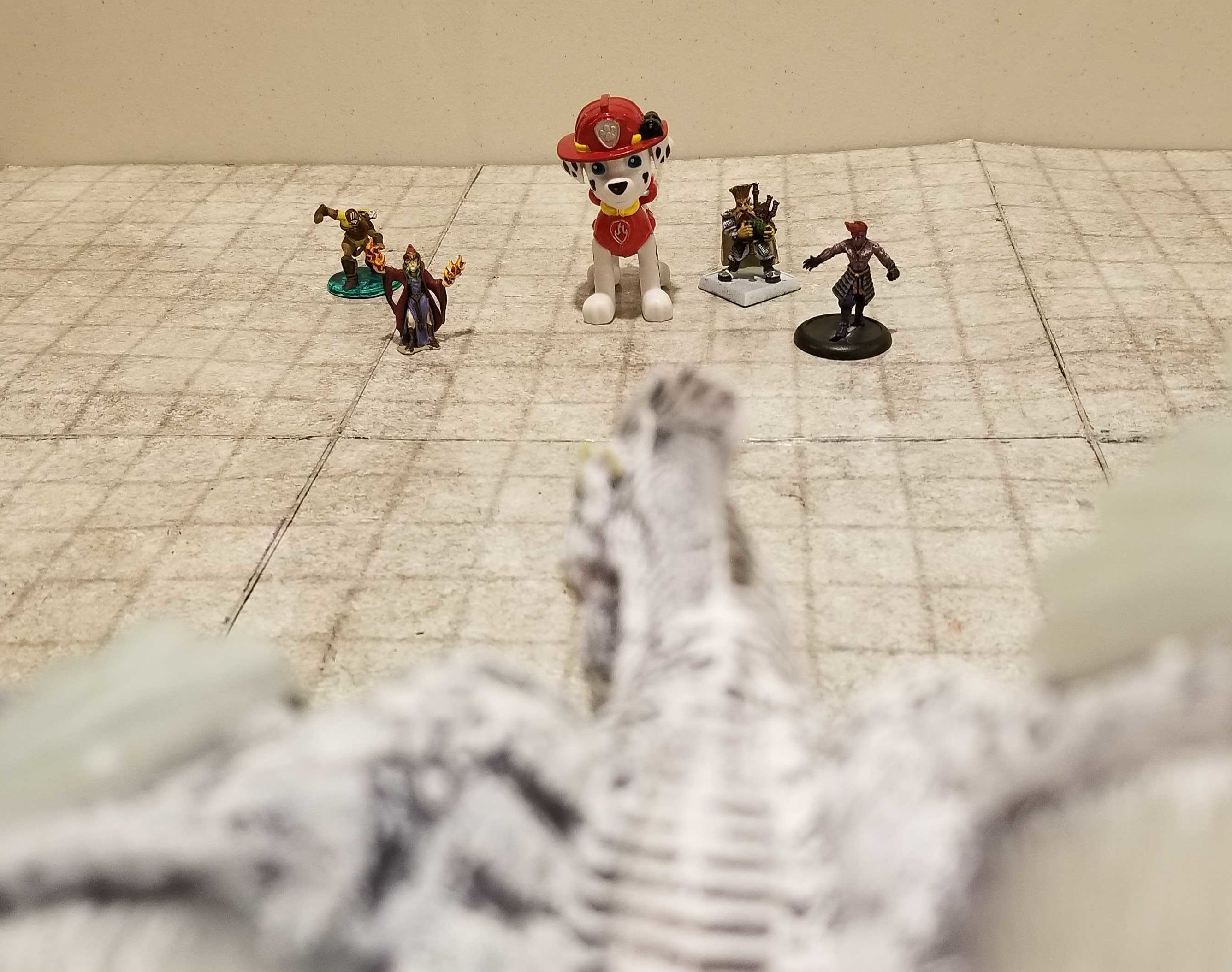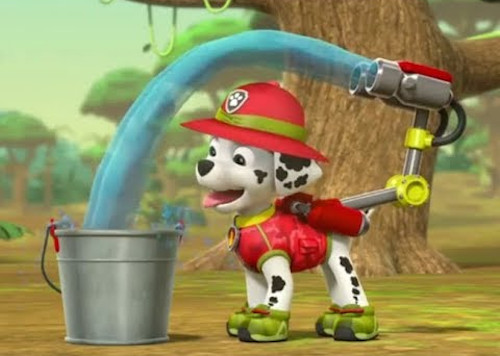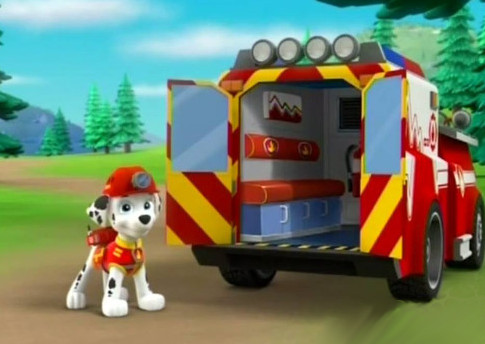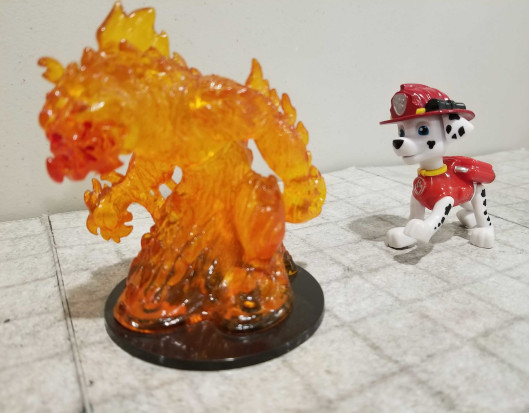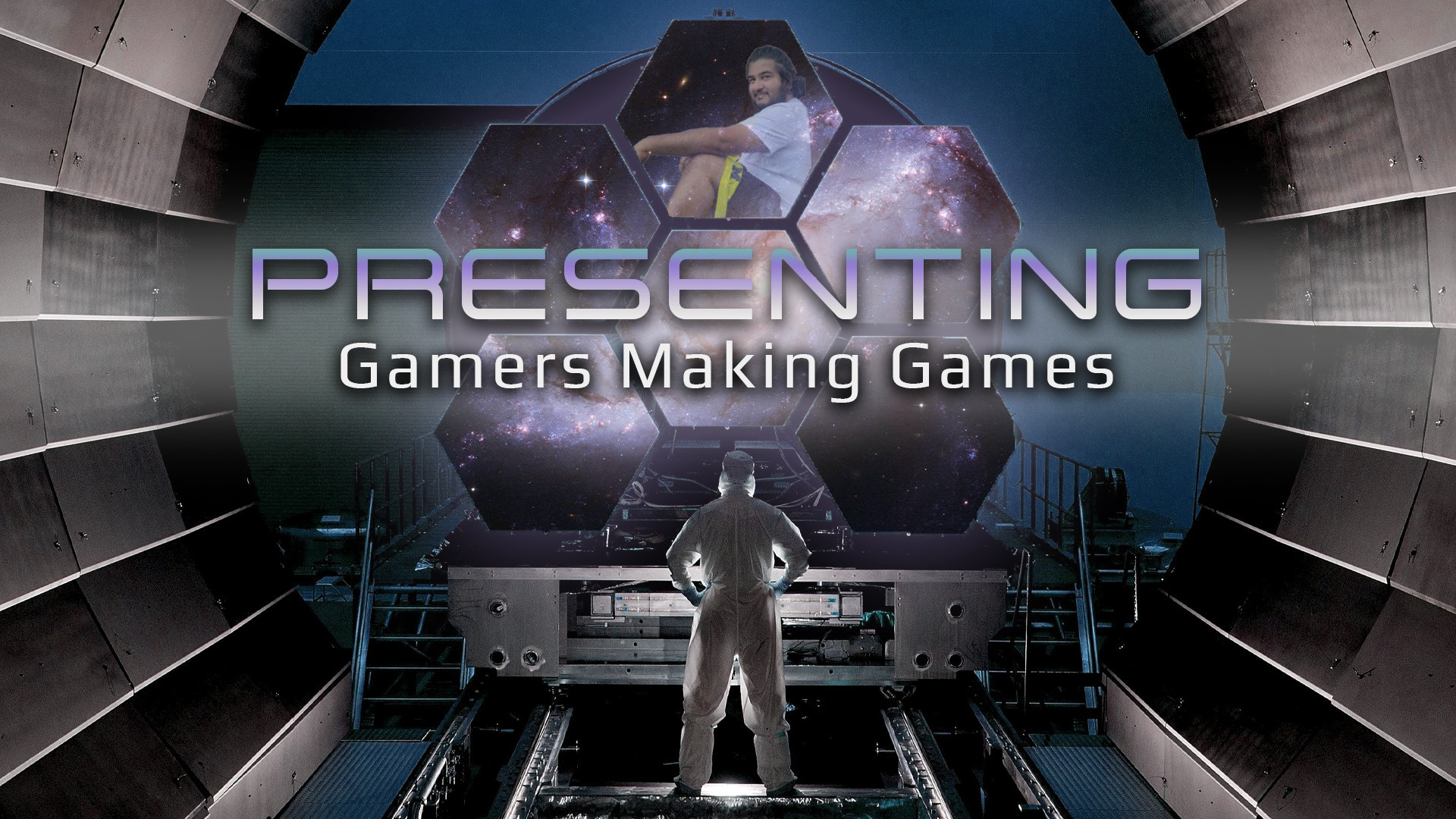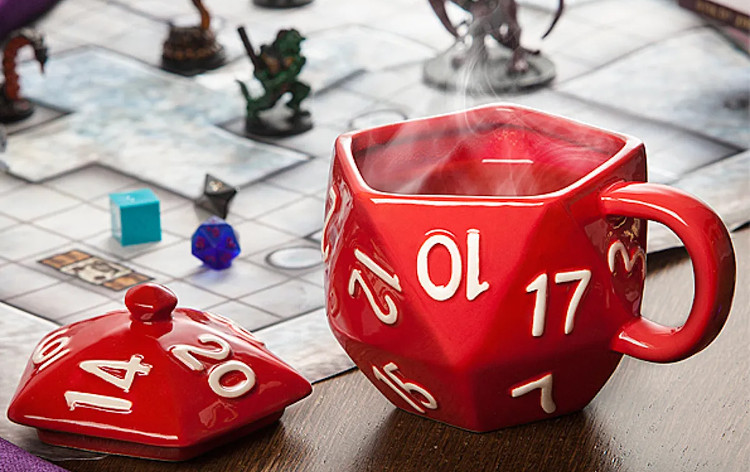At the risk of turning Behind The Screens into GMing With Dad after It Begins, this week’s topic dives deep into Paw Patrol.
For those unfamiliar with the greatest Canadian rescue dogs since The Littlest Hobo, Paw Patrol is a an animated action series for preschool children in which a rapid deployment team of dogs take on the role of every emergency service in fictional Adventure Bay. One of those pups is Marshall, a firefighter. He fights fires. Twice. Now in its eighth season of 40+ stories per season, Marshall, the team’s -and I cannot stress this enough- fire fighter, only ever fought fires in the season 1 episode Pups Fight Fire (when the fire fighter training course accidentally catches fire), and the season 5 episode Ultimate Rescue: Pups Save the Movie Monster. I assume television standard and practices banned fire emergencies from preschool programing for being too intense after the first episode, and Spin Master (owners of Patrol Patrol) pulled some strings to make the episode promoting the $100 Ultimate Fire Truck playset possible.
O.K…?
Armed with that knowledge, think back on some of the players you’ve had at your table. The ones whose favourite character type is “unexpected”. Players who build characters so passionately that, regardless of functionality, they love their new PC. Different players play the game in different ways and for different reasons, and as GMs, we facilitate play. As such, we can learn a lot about how to incorporate awkward character choices into our campaigns from a TV show with a character who’s specialty is… I don’t want to say “useless”, but…
Here are ways Paw Patrol seamlessly fit a misfit onto its cast, and what we can learn from them as GMs:
Share The Spotlight
Every episode of Paw Patrol includes a running gag in which Marshall trips, crashes into the pups, and then makes a pun. Although every pup has a unique personality and quirk, only Marshall has a running gag. Hardly anyone notices that the fire fighter rarely fights fires, but if an episode skipped the Marshall pratfall, children would riot.
A PC is more than the sum of its ABCs.
When one of your players introduces their character, what stands out? That’s what the player wants to emphasize. It might not be anything about their build. It might not even be what they say but how they say it.
Taking the Adventurous cast for example, Cathy emphasized Karrock’s size and awkwardness. When I introduced Xavier, I had a voice and catchphrases ready. Even if we stumbled through every encounter, as long as I got a chance to mug for the table, and Karrock’s size factored into the session in some way, we were happy. In fact, after we beat up some halfling bandits, Crystal handwaved the size restrictions and told Cathy that Karrock could wear one of their chain shirts. In Cathy’s mind, the bump to AC did not make up for the absurdity of Karrock squeezing into a shirt made for a halfling, and she quietly left the loot off her character sheet.
If a PC went all session without a chance to shine, good news: As GMs, we control the spotlight. Even if you’re running a system with social encounters as crunchy as its combat rules, every roleplaying game leaves room for dice-free scenes. If a PC was off for this session, circle back to them before the end of the night to make them look good. And if a PC is consistently off all campaign, try to work in a reoccurring way to make sure the player’s having a good time.
Support Role Opportunities
If Paw Patrol never puts out fires, what’s Marshall do on missions? Mostly, he uses his ladder. Which might have its uses, if he could remove the ladder from his firetruck, and there wasn’t another pup with a helicopter. Logistically, most missions that Ryder says he “needs” Marshall, Skye could handle better. But in a world where kids watch the show clutching their favourite pup’s stuffy, and toy stores sell wave after wave of all six main characters, every pup gets an equal number of missions across the season. Marshall gets the low hanging missions while Skye’s saved for the higher stakes.
At our tables, my fellow GMs, the kids clutching stuffies are our players, clutching their expectations to have a fun time. And the toy stores, they’re our players too. Their character sheets, personalized miniatures, and accessories are their toys they’re looking to move. And if there’s a player at the table whose PC is an acceptable choice for certain tasks but never the best choice, go with the second best choice. There’s a million reasons why we’d call on the bard with less religious knowhow than the cleric to make the roll. We know that it’s because this adventure in the ancient temple gave the cleric plenty of opportunities to roll Religion already, but we can come up with an excuse for players who need one.
Use The Same Tools For Different Jobs
In addition to a firetruck, Marshall’s standard fire fighting kit includes a pup pack with a water cannon. When he’s not using it to put out fires (which, again, he almost never does), he uses it to cool down his warm friends, water plants, or fire another liquid, like paint or tomato sauce.
Switching gears from a children’s cartoon to a Broadway musical, there’s a magnificent moment in Come From Away that makes me think of GMing. Come From Away is about the 7000 people airborne on 9/11 who were redirected to Gander, Newfoundland when the U.S. airspace shut down. These being international flights, not everyone spoke English, and were not communicated why they were being ushered around a remote Canadian town. A local communicates with a Swahiliphone family through the family’s Swahili Bible. Noting the universality of the Bible’s chapter and verse annotations, the local quotes Philippians 4:6 — Be anxious for nothing, which they look up and understand.
When I GM, context is king. I don’t care if I asked for a Linguistics check, if a player can contextually justify how they’d use a Religion check to solve the issue, I’m letting them roll it. In fact, the player doesn’t even need to come up with the idea. If the player whose Vampire Hunter PC in my campaign without vampires (which, for sake of argument, I warned them and they chose to stay the course) can’t figure out what to do in town, I might suggest they help at a local kitchen, “knowing as much as you do about garlic.”
Multiple (Lesser) Talents
In addition to (not) fighting fires, Marshall also serves Adventure Bay as a medic. On a show where no one gets seriously hurt. Truly, 100% of the times Marshall wears his EMP outfit, he helps someone with “just a sprain”.
Every party needs a potion mule. Every group needs a note taker, or initiative tracker. In addition to the role the player and their PC intended to fill, what other ways can they contribute?
Now, don’t drop every menial task on them, or come up with busy work to distract them. But if they can contribute in a way they genuinely enjoy, be it as a player or in character, that will improve everyone’s session.
When They Shine, They Shine
For all the fun we’ve had at the expense of Marshall for rarely fighting fires, rarely ≠ never.
Go get’em, Marshall!
Every two weeks, Ryan Costello uses his experience as a Game Master, infused with popular culture references, to share his thoughts on best GMing practices to help his fellow GMs. Often deconstructing conventional wisdom and oft repeated GMing advice, he reminds his fellow GMs that different players play the game in different ways, and for different reasons.

